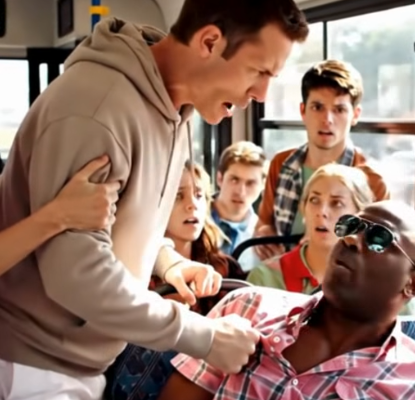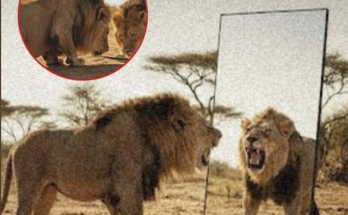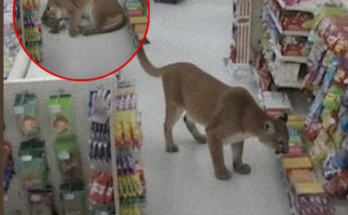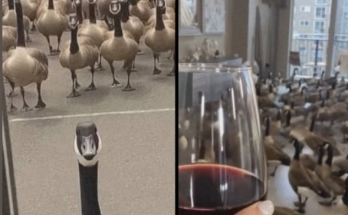We were already standing. Bus packed shoulder to shoulder, people clinging to those grimy metal poles, pretending not to notice the one empty seat—blocked by a designer tote and a guy in sunglasses scrolling TikTok like he paid rent on that bench.
The woman next to me had a kid with her. Couldn’t have been older than five. The boy looked exhausted, swaying every time the bus jerked. She politely asked the man to move his bag.
He didn’t even pause his video. Just said, “There’s standing room.”
I saw her blink—like maybe she didn’t hear right. Then she asked again, softer.
He scoffed. “It’s fragile stuff. Just wait for the next stop.”
And that’s when the man behind her stepped forward. Big guy. Athletic build. Calm voice. Said, “Hey, man. Let the kid sit.”
The guy in sunglasses looked up, slow. “Not your business, bro.”
Wrong response.
The dad (I’m assuming dad—because his grip on the stroller handle earlier was pure father energy) leaned down, real close, and said something I couldn’t hear.
Whatever it was made the kid with the sunglasses bolt upright. He tried to push the man back with one hand. The dad didn’t flinch. Just reached over, grabbed the tote—gently—and dropped it onto the guy’s lap.
“Now it’s your business,” he said.
That’s when the shouting started. The bus slowed. The driver looked up in the mirror.
And then a loud noise—someone’s phone hit the floor with a smack.
The pink-shirt guy jumped up like someone lit a fire under him. His phone had slipped from his lap when the tote landed. It slid across the floor toward the back of the bus.
Everyone stared. Nobody said a word.
He lunged for it, almost tripping over someone’s backpack. When he stood up, his face was red—not embarrassed red. Angry red. He was shaking.
“I’m calling the cops!” he shouted.
A teenager near the back muttered, “For what? Assault by tote bag?”
That got a few chuckles, but Pink Shirt wasn’t laughing. He shoved the tote back toward the dad, who had already stepped aside to let the little boy sit. The mom mouthed a thank-you, looking more surprised than relieved.
“Give me your name,” Pink Shirt barked, waving his phone like a badge. “You’re done.”
The dad shrugged. “It’s Patrick. And if you want to call the cops, go ahead. But they’ll want to know why you refused to let a five-year-old sit down.”
That’s when the driver spoke up. She had one of those tired, no-nonsense voices. “Sit down or get off. I’m not dealing with this all the way to 86th Street.”
Pink Shirt hesitated. Everyone was watching now. Even the guy with earbuds pretending to sleep had opened one eye.
He muttered something under his breath, shoved the tote between his knees, and sat back down.
The boy was now in the seat, happily swinging his legs. His mom handed him a juice box from her purse. Peace returned—sort of.
I kept glancing at Patrick. He looked calm again, but there was this tension still clinging to him. Like he was ready in case Pink Shirt made another move.
Turns out, Patrick wasn’t just a random dad. I overheard him on a call a few stops later. He worked with at-risk youth, ran a boxing program for teens. He told whoever was on the line, “Yeah, I had to remind someone that being grown doesn’t mean being decent.”
I smiled at that. It stuck with me.
But the real twist? That came three days later.
I was walking out of my building when I saw a familiar face crouched by a car with the hood up.
It was Pink Shirt.
No sunglasses this time. Just sweat and frustration. He was trying to fix something under the hood of an old black sedan. I almost walked past him—almost.
But curiosity made me stop.
“Car trouble?”
He looked up, squinting. Recognition flashed in his eyes. “You.”
“Me,” I said.
There was a long pause. Then he sighed. “Yeah. Battery died. Left the lights on.”
I pointed to the jumper cables dangling from his hand. “Need a jump?”
He hesitated. Then nodded, quiet. “Yeah… I guess I do.”
I pulled my car around. Hooked the cables up. While the engine charged, I decided to ask.
“You always like that on buses?”
He didn’t answer right away. Just stared at the ground.
“No,” he finally said. “Well… maybe. I used to be worse.”
“What changed?”
He glanced over his shoulder, as if checking to make sure no one was listening.
“My sister,” he said. “Had a stroke last year. Thirty-four. We thought she was too young for something like that.”
I blinked. That caught me off guard.
“She’s okay now?” I asked.
“Learning to walk again,” he said. “But when I visited her in the hospital… everyone was kind. Nurses. Random strangers. Even when she was angry and scared. And it made me realize—I’ve never been that for anyone. Not once.”
I didn’t know what to say.
He laughed bitterly. “So I bought self-help books. Downloaded meditation apps. Started wearing bright colors. Pink’s supposed to open the heart, right? Still got a long way to go.”
I looked at him. Really looked. He was trying, in his own awkward way.
“You might start with making room on the bus,” I said, smiling.
He laughed. “Yeah. That one’s stuck in my head too.”
His car started then, coughing to life. He leaned out the window and said, “Thanks. And… sorry for how I acted.”
I nodded. “We’ve all been someone we’re not proud of.”
And that could’ve been the end. But fate, or something like it, wasn’t done with us.
A week later, I was back on the bus. Not as crowded this time. I noticed a woman with a cane trying to board, and I was about to stand when someone else jumped up.
It was Pink Shirt.
He offered her his seat without hesitation. Helped her get settled. Then, with a smile, stood by the door.
I caught his eye. He gave me a small nod.
Maybe it was nothing. Maybe it was everything.
Sometimes, the people we least expect are the ones carrying the heaviest loads. Maybe that tote wasn’t just full of “fragile stuff.” Maybe he was.
And sometimes, all it takes is someone standing up—not just for a seat, but for a better version of themselves.
If Patrick hadn’t spoken up that day, maybe Pink Shirt never would’ve had his wake-up call. And if I hadn’t stopped to help later, I never would’ve known the full story.
We write people off too quickly.
But growth isn’t loud. It’s quiet. It’s in the second chance. The small nod. The seat offered when no one’s looking.
Next time you see someone acting out, maybe they’re still learning. Still healing. Still trying.
Or maybe… you’re their wake-up call.
So what would you have done on that bus?
If this story moved you, give it a like and share it with someone who could use a reminder that people can change. Sometimes all it takes is a little push—and a pink shirt.



